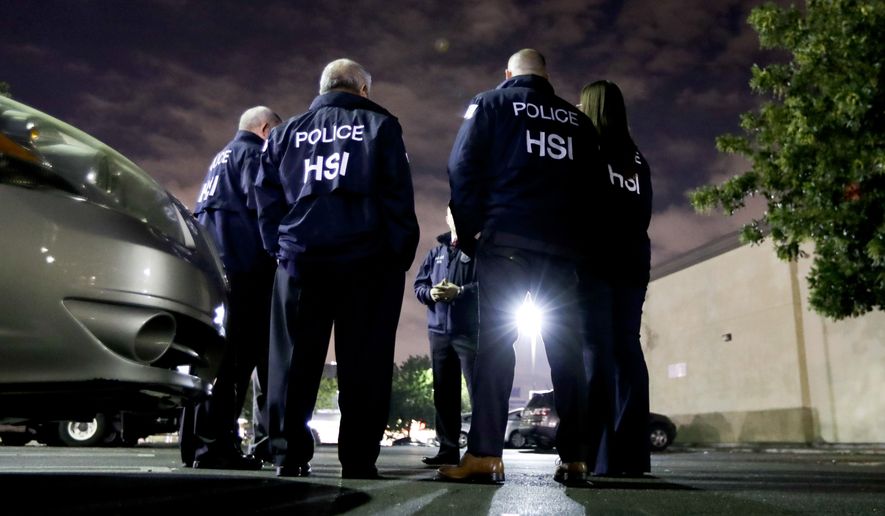A federal judge punched another hole in the Trump administration’s get-tough approach to asylum-seekers Monday, ruling that the government must consider granting them parole to be released into the U.S. while their cases are being heard.
Judge James E. Boasberg said U.S. Immigration and Customs Enforcement was violating its own 2009 policy, and must return to that directive.
His order covers five different ICE offices where parole rates had dropped to near-zero, which he said meant the agency had essentially stopped doing individualized assessments and was just denying parole requests outright.
“Today’s decision will have an enormous impact on asylum-seekers, who pose no risk, and are currently languishing in detention,” said Hardy Vieux, legal director at Human Rights First, one of the groups that helped bring the challenge on behalf of asylum-seekers.
The ruling is also the latest in a series of cases where the Trump administration has been found to have cut corners on its immigration policy. Judges also found problems with Homeland Security’s attempt to phase out the Obama-era DACA program, and with the Justice Department’s attempt to strip sanctuary cities of federal grant money.
In this case Judge Boasberg, an Obama appointee to the federal district court in Washington, D.C., said the 2009 ICE policy grants asylum-seekers certain rights, and he said before the government can change that policy, it must go through the usual process laid out in regulatory law.
He also said there’s little doubt in his mind the government did change the policy — even though it has never announced such a change.
During an eight-month period, ICE’s offices in Philadelphia, El Paso, Texas, and Newark, New Jersey, denied 100 percent of parole requests. Los Angeles and Detroit offices denied 92 percent and 98 percent of requests.
“The numbers here are irrefutable,” the judge wrote.
The Justice Department declined to comment. ICE also didn’t have a comment when reached Monday evening.
Judge Boasberg granted class-action status to asylum seekers in the five ICE offices in question.
His ruling doesn’t guarantee their release, but it does mean the government must give them a chance to show they deserve parole. That means proving they are who they say they are, that they’re not a risk to abscond, and that they aren’t a risk to public safety or national security.
The people affected have passed “credible fear” screenings, meaning they’ve shown at least some level of reticence in being sent back home.
The ruling comes as immigrants who crossed the border illegally are increasingly turning to the asylum system for protections, arguing that they are refugees.
Trump administration officials say the credible fear standard is too low and lets too many people abuse the asylum track, gaining a foothold in the U.S. where they disappear into the shadows.
The latest government statistics show just 15 percent of those who made credible fear claims this year have filed for asylum.
Of those that do fill out the paperwork, the vast majority will lose their asylum cases. Justice Department figures say the approval rate in 2018 is about 1-in-5.
That suggests only about 3 percent of the migrants arriving at the border and claiming asylum will actually be granted that status.
• Stephen Dinan can be reached at sdinan@washingtontimes.com.




Please read our comment policy before commenting.